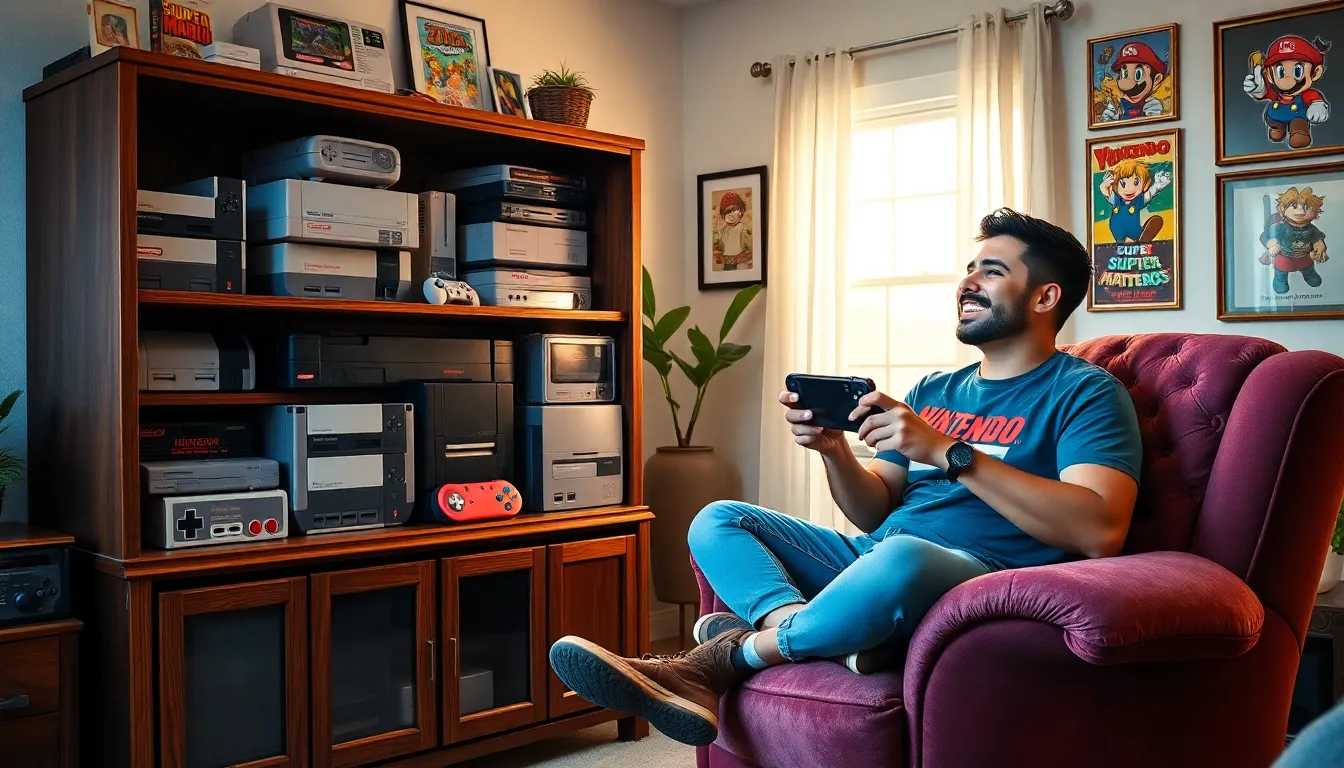Nintendo has long been a cornerstone of the gaming world, captivating audiences with its innovative consoles and beloved characters. From its origins as a playing card company to its status as a gaming giant, the company’s journey is not just a tale of triumph but also of creativity and resilience. This article delves into Nintendo’s history, its cultural impact, the controversies it has faced, and what the future may hold for this iconic brand.
A Brief History Of Nintendo

The Evolution Of Nintendo Consoles
Founded in 1889, Nintendo’s first venture was into playing cards: but, the company transitioned to video gaming in the 1970s. The release of the Color TV-Game in 1977 marked its entry into the console market, paving the way for a series of innovative devices. In 1983, Nintendo released the Famicom (Family Computer) in Japan, which later became the Nintendo Entertainment System (NES) in North America in 1985. The NES revolutionized home gaming, introducing iconic titles such as Super Mario Bros. and The Legend of Zelda.
The 1990s saw the debut of the Super Nintendo Entertainment System (SNES), known for its enhanced graphics and sound capabilities, followed by the groundbreaking Nintendo 64, which introduced 3D gaming. The 2000s brought the Nintendo GameCube, although it struggled against SONY’s PlayStation 2. But, Nintendo rebounded with the Wii in 2006, targeting casual gamers and revolutionizing motion-sensing gaming. The Switch, launched in 2017, continues this legacy, combining home console and portable gaming.
Iconic Nintendo Games Through The Years
Nintendo is synonymous with some of the most beloved franchises in gaming history. Characters like Mario, Link, and Donkey Kong have transcended gaming, becoming cultural icons. Super Mario Bros., which defined platform gaming, has spawned multiple sequels and spin-offs. The Legend of Zelda series has innovated gameplay and storytelling, influencing countless games across genres. Meanwhile, Pokémon has become a global phenomenon, celebrated not just for its games but also for trading cards, animated series, and merchandise, reinforcing Nintendo’s place in popular culture.
Nintendo’s Impact On Gaming Culture
Multiplayer Experiences And Community Building
Nintendo has continuously emphasized the importance of community and multiplayer experiences. From its early days with the NES’s four-player adapter to the online capabilities of the Switch, Nintendo has fostered social connections among gamers. Titles like Mario Kart and Smash Bros. not only brought friends together on the couch but also ushered in a new era of competitive gaming.
The rise of online play has enabled gamers to connect with others worldwide, creating vibrant communities and fostering friendships that often extend beyond the game itself. Events like Nintendo Direct and conventions such as E3 have further solidified Nintendo’s commitment to engaging its audience and celebrating its franchises.
Innovative Gameplay Mechanics
Nintendo has a reputation for pushing the boundaries of traditional gaming mechanics. The Wii’s motion controls redefined how players interact with games, making it accessible to a broader audience who may not have considered gaming before. Also, the Switch’s hybrid design allows players to switch seamlessly between handheld and console play, a feature that attracted a diverse array of gamers.
Games like Splatoon have introduced fresh concepts, such as using ink as a dynamic weapon, creating innovative gameplay that resonates with younger audiences. This combination of creativity and innovation keeps Nintendo at the forefront of gaming culture, consistently offering experiences that captivate and challenge players.
Controversies And Criticisms
Reactions To Pricing And Product Availability
Even though its success, Nintendo has faced its share of controversies. Pricing strategies often draw ire from consumers, particularly about console launches and game pricing. The release of the Nintendo Switch OLED model raised eyebrows, as many felt the incremental upgrades didn’t justify the higher cost. Also, product availability, particularly during the pandemic, left many fans frustrated as they struggled to find consoles amidst widespread shortages.
Addressing Market Shifts And Competitors
As the gaming landscape evolves with the surge of competitors like Sony and Microsoft, Nintendo has faced scrutiny over how it addresses market shifts. The company’s family-oriented branding often contrasts sharply with the focus on graphics and online services that competitors emphasize. Critics argue that Nintendo has lagged in certain areas like online infrastructure compared to rivals that offer robust ecosystems. But, Nintendo remains steadfast in its commitment to its unique identity, often choosing innovation over direct competition.
Looking Ahead: The Future Of Nintendo
Predictions For Upcoming Releases
As gaming technology advances, the future of Nintendo looks bright. With the recent success of the Nintendo Switch, speculation abounds about its successor. Would it continue the hybrid model, or return to its roots? Fans eagerly anticipate announcements related to new entries in beloved franchises, as well as entirely new IPs. The potential for augmented reality games, building on the success of Pokémon GO, could also represent a new frontier for Nintendo.
The Growing Importance Of Online Features
With the increasing reliance on online gaming, Nintendo is likely to enhance its online services. Consumers expect robust online multiplayer and cloud services, which Nintendo has gradually improved with the Nintendo Switch Online service. Future updates might feature expanded cloud saves, game libraries, and possibly more competitive gaming options, reflecting industry trends toward interconnected gaming experiences.
Conclusion
Nintendo’s journey is a rich tapestry of innovation, cultural significance, and resilience. Its ability to adapt while staying true to its core values has cemented its place in the hearts of gamers for generations. As the company looks to the future, it will undoubtedly face challenges from competitors and market trends. But, if history is any indication, Nintendo will continue to embrace its creativity, cultivating experiences that resonate deeply with players of all ages.